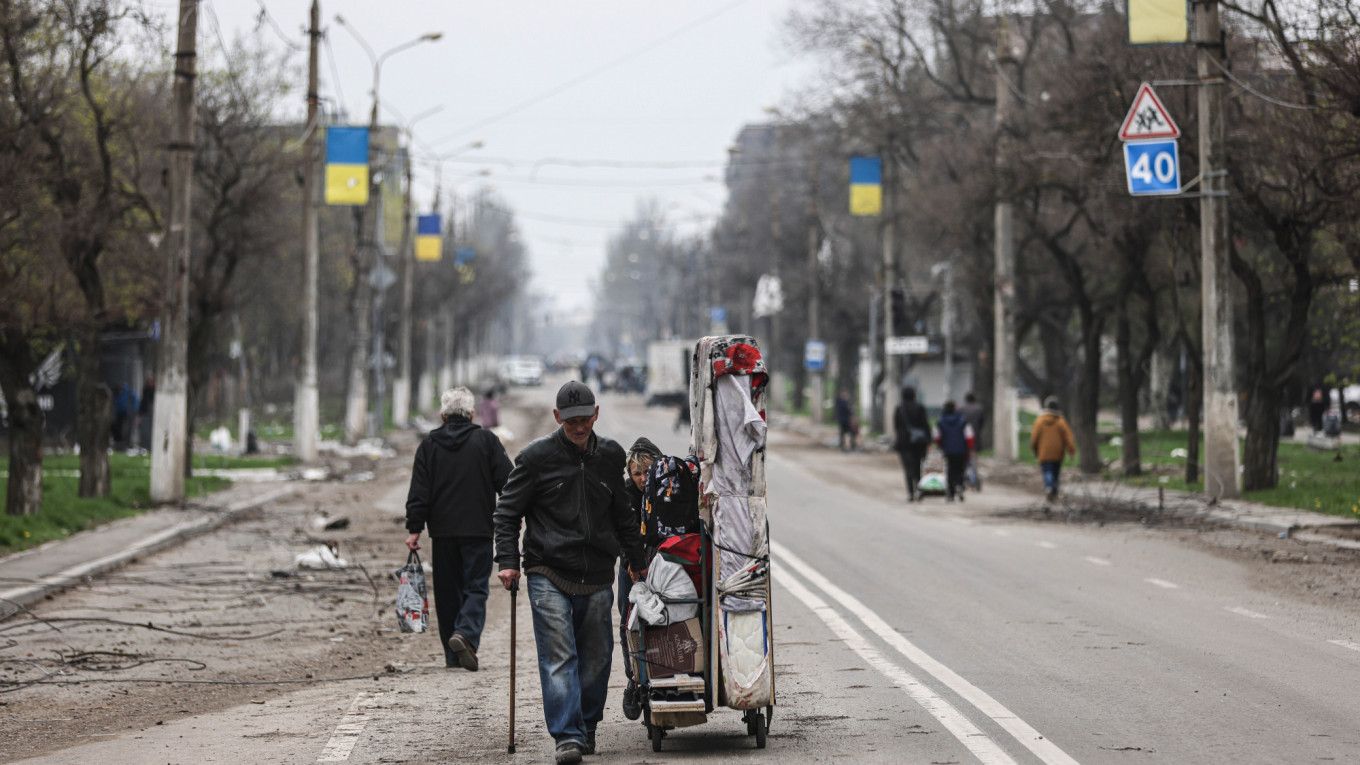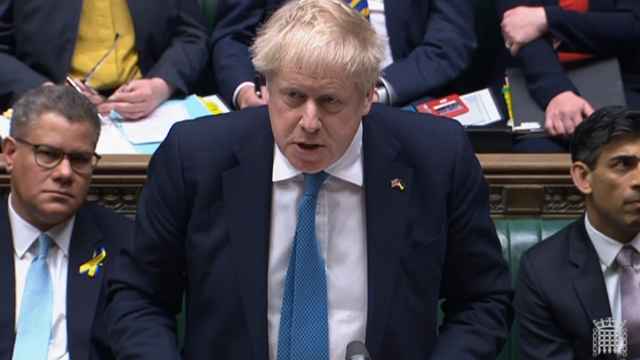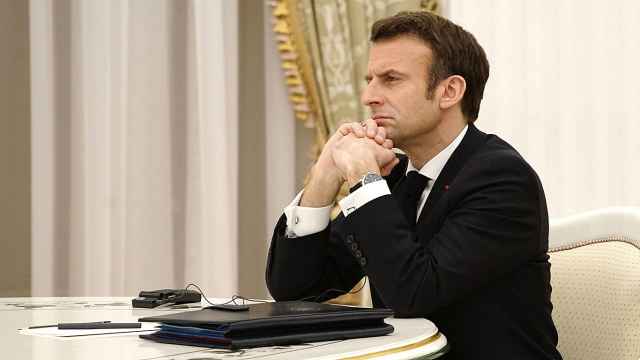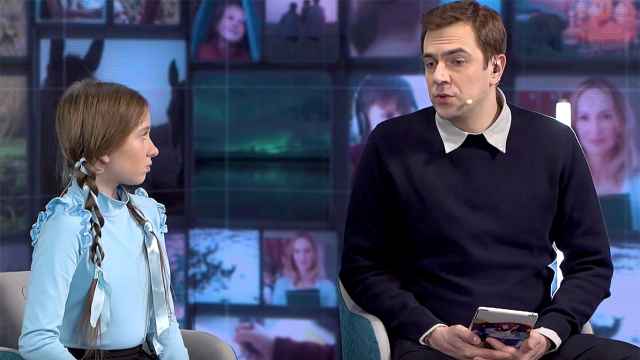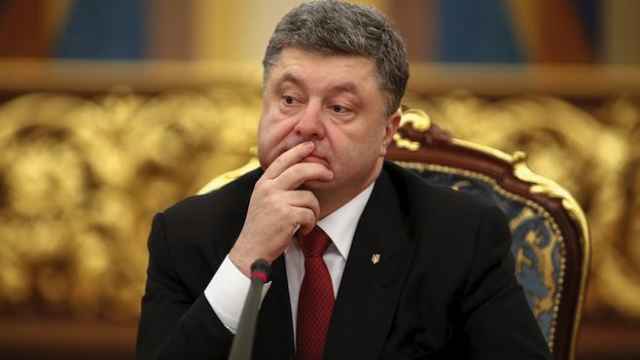Mariupol could fall into Russian hands within "hours," a Ukrainian official said, as the enemies agreed Wednesday to a humanitarian corridor for civilians to flee the devastated port city following a two-month siege.
As fighting raged in the country's east and south, the president of the European Council Charles Michel arrived in Kyiv, where he vowed the EU would do "everything possible" to help Ukraine win the war.
"You are not alone. We are with you," Michel said during a press conference alongside Ukrainian President Volodymyr Zelensky.
Michel's visit comes as the West continues to pour weapons into Ukraine amid a renewed Russian push into the eastern Donbas region where a new offensive launched this week has led to an uptick in fighting.
Hours ahead of Michel's arrival, the Pentagon said that Ukraine had recently received fighter planes and parts to bolster its air force, following repeated calls from Kyiv for heavier weapons.
Ukraine's air force later hit back at the claim, saying they had only received spare parts to help replenish their existing fleet and had not been given additional aircraft.
The announcement came as the battle for Mariupol appeared to be nearing a crucial tipping point, after nearly two months of devastating fighting that has seen untold numbers of civilians trapped and killed.
Control of Mariupol and the separatist-controlled Donbas region in the east would allow Moscow to create a southern corridor to the Crimean Peninsula that it annexed in 2014, depriving Ukraine of much of its coastline.
In the latest ultimatum issued in its battle to capture Mariupol, Moscow made another call for the city's defenders to surrender on Wednesday by 2:00 p.m. Moscow time (11:00 GMT) and announced the opening of a humanitarian corridor for any Ukrainian troops who agreed to lay down their arms.
As the deadline approached, a commander in the besieged Azovstal steel plant issued a desperate plea for help, saying his marines were "maybe facing our last days, if not hours."
"The enemy is outnumbering us 10 to one," Serhiy Volyna from the 36th Separate Marine Brigade said.
"We appeal and plead to all world leaders to help us. We ask them to use the procedure of extraction and take us to the territory of a third-party state."
Thousands of troops and civilians remain holed up in the plant.
An adviser to the mayor of Mariupol described a "horrible situation" in the encircled complex and reported that up to 2,000 people — mostly women and children — are without "normal" supplies of drinking water, food and fresh air.
Svyatoslav Palamar, a commander in the nationalist Azov battalion defending Mariupol, said the Russian attack on the sprawling steel complex was relentless.
"Powerful bombs have been dropped several times on Azovstal, we have been bombed from boats... we are under siege. The front is 360 degrees," said Palamar in a post on Telegram, adding that hundreds of civilians were also trapped at the plant.
"The situation is critical, we call on international leaders to help the children," he added.
Offering some respite, Kyiv said early Wednesday it had agreed with Russian forces to open a safe route for civilians to flee the devastated city.
"We have managed to get a preliminary agreement on a humanitarian corridor for women, children and elderly persons," Deputy Prime Minister Iryna Vereshchuk wrote on Telegram.
'Violent deaths'
Elsewhere on the frontlines, Ukraine's defense ministry reported its troops had beaten back a Russian attack in the city of Izium, south of the partly blockaded second city of Kharkiv in the east.
Kyiv also claimed enemy losses in a Ukrainian counter-attack near the town of Marinka in Donetsk.
Separately, Russia on Wednesday said its forces had launched 73 airstrikes across Ukraine, hitting dozens of locations where troops were concentrated.
In eastern Ukraine's Kramatorsk, a large city in the Donetsk region, residents were already bracing for the worst.
"It's going to be a mess," said Alexander, 53. "There's nothing good to expect."
Further from the frontlines, residents were still reeling weeks after Russian forces withdrew from the area near the capital Kyiv.
At a morgue in Bucha, families carefully searched body bags and examined cadavers looking for missing loved ones.
In the car park of the small communal morgue, the body bags arrived in carts or were piled up in trailers, vans and non-refrigerated trucks.
Four hundred bodies have been discovered since the Russians withdrew on March 31, local police chief Vitaly Lobas told AFP. Around a quarter of them are still unidentified.
"The majority died violent deaths" and were shot, Lobas said, declining to provide a concrete figure at this stage.
'War crimes'
President Vladimir Putin has said he launched the so-called military operation in Ukraine in February to save Russian speakers in the country from a "genocide" carried out by a "neo-Nazi" regime.
But his forces have faced allegations of war crimes — most recently from the EU's Michel during his visit to Kyiv on Wednesday where he toured the devastated nearby town of Borodianka.
"In Borodianka. Like Bucha and too many other towns in Ukraine. History will not forget the war crimes that have been committed here," Michel wrote on Twitter.
"There can be no peace without justice," he added.
Ukrainian authorities have said that over 1,200 bodies have been found in the Kyiv region so far.
A Message from The Moscow Times:
Dear readers,
We are facing unprecedented challenges. Russia's Prosecutor General's Office has designated The Moscow Times as an "undesirable" organization, criminalizing our work and putting our staff at risk of prosecution. This follows our earlier unjust labeling as a "foreign agent."
These actions are direct attempts to silence independent journalism in Russia. The authorities claim our work "discredits the decisions of the Russian leadership." We see things differently: we strive to provide accurate, unbiased reporting on Russia.
We, the journalists of The Moscow Times, refuse to be silenced. But to continue our work, we need your help.
Your support, no matter how small, makes a world of difference. If you can, please support us monthly starting from just $2. It's quick to set up, and every contribution makes a significant impact.
By supporting The Moscow Times, you're defending open, independent journalism in the face of repression. Thank you for standing with us.
Remind me later.


